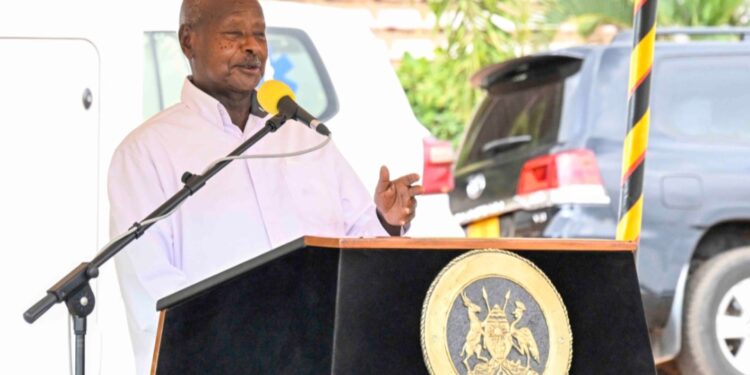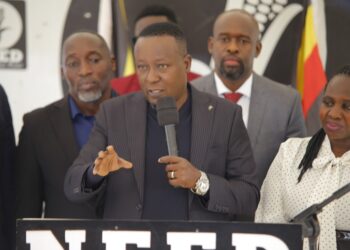In an unapologetic stand, President Yoweri Museveni of Uganda has scoffed at the United States’ decision to axe Uganda from the esteemed list of beneficiaries under the African Growth and Opportunity Act (AGOA).
With a resolute tone, he urged his compatriots not to lose sleep over the whims of the US, dismissing their actions as the folly of Western actors who underestimate the resilience of Africa’s freedom fighters.
“Some of these actors in the Western World overestimate themselves and underestimate the freedom fighters of Africa. Certainly, as far as Uganda is concerned, we have the capacity to achieve our growth and transformation targets, even if some of the actors do not support us,” declared Museveni, undaunted by the perceived snub.
Last week, the hammer came down as US President Joe Biden unceremoniously expelled Uganda, along with Central African Republic, Gabon, and Niger, from the AGOA beneficiaries list, effective January 2024.
This jarring move threatens to disrupt the lifeline that AGOA, a channel offering duty-free access to the U.S. market, has provided since its launch in 2000. The looming question now looms: will this vital lifeline be extended beyond its September 2025 expiration?
Yet, Museveni, in his unyielding defiance, commended the US for continuing to support the procurement of life-saving HIV drugs for over 1.4 million Ugandans, though he assured the nation that even without this aid, Uganda has a contingency plan firmly in place.
He branded the Western actions as an affront, a display of arrogance that he believes should be met with resounding rejection from the African continent.
“Why don’t these actors put similar pressures on some of the Arab countries?” Museveni posed, drawing parallels to historical struggles for independence that forged the African Union.
“In 1963, the OAU was founded in Addis Ababa. Only 36 African countries were independent at that time, and they are the ones that attended. Almost another 20 countries were not yet independent. That OAU meeting, then, demanded that all the African countries must be independent, either by peace or by war. The arrogance of the World, mocked us. What can Africans do?”
With conviction, Museveni asserted that Africa possesses all the vital components for success, asserting that under the National Resistance Movement (NRM), Uganda is destined for prosperity, regardless of external opposition or internal naysayers.
Encouragingly, he acknowledged that not all Western actors share the same hubris, and many either support Uganda or abide by the principles of mutual respect.
Yet, amidst Museveni’s unwavering resolve, concerns persist. Chairman of the Presidential Advisory Committee on Exports and Industrial Development (PACEID), Rwabwogo, warned of the repercussions of AGOA’s removal. While Ugandan trade through AGOA may not have been monumental, its growth was a pivotal component of their economic strategy, particularly for small-scale farmers and business owners who now face an uncertain future.
In a contentious backdrop, US President Biden had previously called for the repeal of Uganda’s anti-gay legislation, escalating tensions. The law, passed in May, includes severe penalties for consensual same-sex relations, further complicating relations with Western entities.
The World Bank’s suspension of new loans in August and the US State Department’s cautionary advice regarding business ventures in Uganda have only deepened the rift.
Museveni, however, fired back, accusing the World Bank of attempting to wield financial leverage to coerce Uganda into abandoning its contentious legislation.
In the face of adversity, Museveni remains resolute, adamant that Uganda will forge ahead, with or without the support of external forces.
Do you have a story in your community or an opinion to share with us: Email us at editorial@watchdoguganda.com













